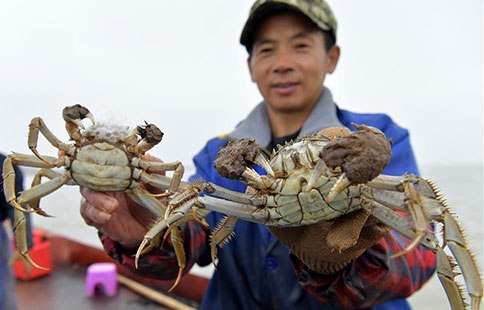SYDNEY, Nov. 7 (Xinhua) -- Several streams in Australia's Victoria state capital Melbourne contain disturbing levels of pharmaceutical compounds, including antidepressants, that may put platypuses and other major aquatic animals in the waterways at risk to impact the wider ecosystem, according to the latest Australian-led research.
"The concentrations of drugs in stream invertebrates that we have found suggest that animals such as platypuses that eat these invertebrates may be exposed to antidepressants, for example, in doses that are up to half those of human therapeutic doses," lead study author Dr Erinn Richmond from Monash University said in a statement on Wednesday.
The study is the first of its kind to show that a diverse array of pharmaceutical compounds exists in food webs which could be transferred to spiders and other organisms that feed on aquatic invertebrates, according to the researchers.
Many pharmaceuticals enter streams via wastewater treatment facilities, which are not designed to remove all the compounds people consume, or via septic tanks and leaky pipes, they said. The research team tested for 98 different pharmaceutical compounds and found that larval invertebrates living in the stream can accumulate pharmaceuticals and that their predators, platypuses and brown trout, could be consuming the pharmaceuticals at up to half the daily dosage for humans.
"Our research is significant because we confirm that many pharmaceuticals are accumulating in aquatic invertebrates, but are also leaving the stream and moving to the surrounding landscape where they are consumed by spiders and potentially birds and bats for example," said Richmond.
The findings were published in scientific journal Nature Communications.
"The drugs we take have a targeted physiological response in humans -- that's why we take them," said study co-author Associate Professor Michael Grace from the university.
The "wide variety of these same drugs" was now "being taken up by invertebrates in streams and then moving up the food web and out of the waterway when these insects emerge", he said.
"It is now important to find out what effects the pharmaceuticals we take are having on these non-target organisms."













